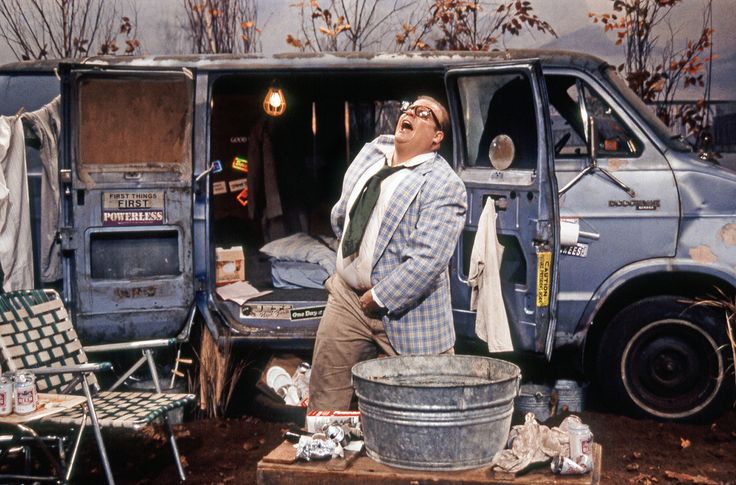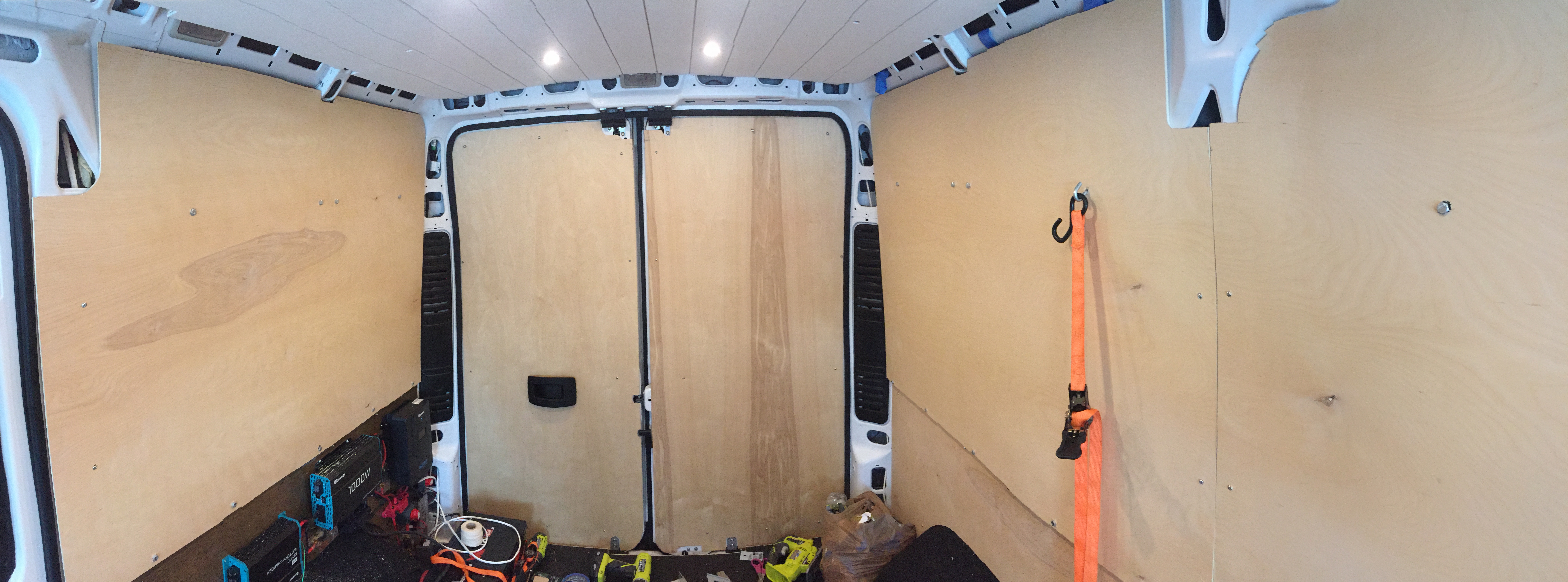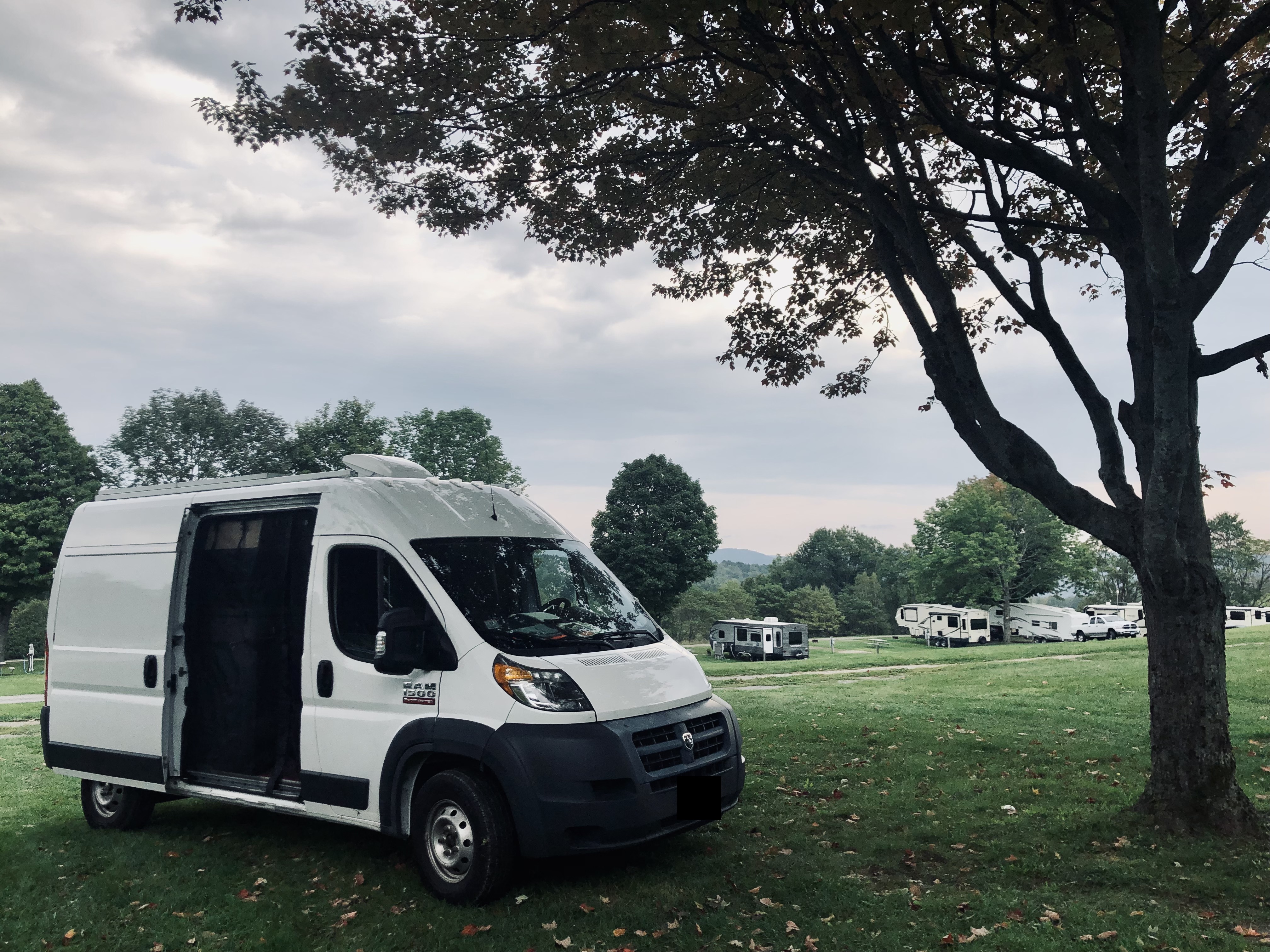Q: What's the best van to use?
A: This is a much-debated question, because there is no perfect van for everyone. Some people like cargo vans with no windows for better security, while some like window vans for ease of driving and to view scenery or conversion vans which blend in well in neighborhoods. Some people find box vans to be beneficial for space while others consider the Sprinter vans to be the Holy Grail and still others choose smaller vans for the better fuel economy. It all comes down to how you intend to use your van and your budget, as to what will fit your needs the best.
Q: How do I keep clean/bathe while living in a van?
A: Many VanDwellers choose to join local or national franchise gym (24hr Fitness or Planet Fitness, for example), in order to use the showers. There are of course other options like truck stops or state parks and sometimes larger cities have public showers but usually a gym membership is the best way to go if you want to shower often. There are also other ways to stay clean such as using a water bottle and wash cloth or baby wipes and the quick dip in a local lake or stream. It really depends on what you have available in your location, but just because you live in a van, doesn't mean you can't stay clean.
Q: How and where do you poop?
A: In the woods, use a cathole. If in doubt, carry it out.
In town, visit Sonic, the library, the gas station, the grocery store.
There's the good 'ole "pee bottle."
There are actually commercially available devices, called the “SheWee " and "Go Girl ", that are available for females to allow them to urinate while standing up.
Or buy/make an Emergency potty for yourself. Luggable Loo Portable 5 Gallon Toilet,or Cleanwaste Wag Bags Toilet Kit Pack of 6, or Medical Steel Folding Bedside Commode lined with a plastic trash bag and some cat litter, pine shavings, or peat moss. The poop gets tied up tightly inside the trash bag and then gets disposed of in a garbage can or dumpster in the morning, just like a used baby diaper or doggy doo bag. Or there is the original Chamber pot with lid.
The standard "cassette" toilets of Thetford and Camco are quite popular. These can be emptied into any flushing commode for easy disposal, or can be poured into blackwater dump sites.
Q: What do you do for work or money?
A: VanDwelling appeals to a broad group of people, meaning income sources vary widely. Likely the best option is some sort of self-based income source you can generate on the road assuming you want to travel most of the time. Some ideas along this route could be internet related like selling things online (think eBay or Etsy) to being a freelance programmers or perhaps a web developer. Check out FlexJobs or WeWorkRemotely.
You can also choose travel friendly ideas like seasonal jobs at resorts, work camping at state/national/regional parks (check their website), KOA camps, Workamper, WWOOFing or just making money as a street busker. Other options could be working temporary jobs like Amazon's camperforce or another option might be going to temporary agencies and taking random job assignments.
Many people don't work, some people choose this lifestyle because they are retired or on social security and this allows them a way to live within their means. Then there are people who have no solid income source and get by what ever the day brings from panhandling or busking.
Q: How do you keep your pet warm/cool in the van?
A: Keeping the van cool in summer is THE single most difficult thing in all of VanDwelling -- and it's required if you will be bringing a pet. The ONLY way to reliably cool the interior of a van below ambient temp is an air conditioner, and they use a lot of power. That means you'll need either shore power, or a generator, or a VERY large solar panel system.
Also, people know that leaving a pet in a car is dangerous, so most states allow (Good Samaritan Law) people to break the window to "rescue" the pet -- and the law relieves them of liability for damages. So you may very well come back to your van to find your window broken out, your dog gone, and a notice from the police that they've impounded your pet and are taking it to the SPCA. You can also face large fines for "animal cruelty".
Q: I will insulate my van! That will keep it cool in the summer and warm in the winter. What's the best way to do that?
Insulating your van is a very personal choice based on your location and what you're wanting to accomplish with your climate control measures. In the end, the interior temp will always equalize with the exterior temp. Insulation delays that for a while, but it does not stop it, and insulation is much more effective at keeping heat in than it is at keeping heat out. The only way to actually lower the temp inside the van is with an climate control (A/C).
Q: Where can I dump my toilet contents?
A: Please dump any black water or gray water in appropriate Sanitary Dump Stations. RV Dump Sites and Campendium have comprehensive lists.
Q: How much battery do I need?
A: Calculating your battery needs is a very personal calculation. Some of us have no extra battery setup and only use the vehicle's starter battery and the dash cigar plug or USB ports, some of us have just a few things that we charge (fan, phone, and light) run from a small household or leisure battery, some of us have built-in walls of lights and fans, some have refrigerators, some have electric induction cook stoves, and a few even run air conditioners... each of these scenarios takes increasingly larger battery banks. There is no One Magic Answer.
Q: How can I charge those batteries?
A: This can be done with solar, alternator charging, shore power, or a generator. The amount of electricity you use and the availability of charging methods will determine which suits your plan the best.
-
You can use your vehicle alternator: If you drive more than, say, 50 miles per day, then your alternator isn't doing much work most of that time. You can put it to use to recharge your house battery. It's a simple circuit to install, and will also supplement other methods through what is often regular course for vehicles - driving.
-
A generator is handy for power-hungry use cases where the noise and fumes won't be a burden. Multiply the nominal output rating by how long you plan to run it.
-
If you're able to plug in, then using a battery charger or AC charge controller can top off your batteries as needed.
-
Or you can use solar panels...
Q: Which solar panels do I need?
A: You need to calculate how much solar panel capacity (in watts) you will need to keep your battery bank charged. Take the total capacity in amp-hours you decided on for your battery bank, and double it. That is the minimum size solar panel array, in watts, that you will need to reliably charge your battery bank.
Your location will impact your solar power size, to keep your batteries filled. To get a general supply figure, divide your solar size (output) in half if you'll stay in middle latitudes, quarter it for latitudes where the sun will hit the panels at an angle, or to account for winter-time drop in sun exposure.
Q: How do I know which wires to use in my van's electrical system?
A: Safe electrical wiring is very strictly dictated by the Current (in Amps) that will be pulled down the wire, and Length (in Feet) that the power will be traveling on its ROUND TRIP to and from its connection.
Refer to the Blue Sea wire gauge chart to select the correct gauge wire.
Q: Where can I park in suburban or urban areas?
A: Nobody is going to allow you to move in, set up camp, and never leave, in their business parking lot or on their private property. You will need a series of locations to rotate through so you're never in one spot for very long, long enough to be noticed.
Check the area for "No Overnight Parking" or "No Trespassing" signage. There is a difference between No Camping and No Overnight Parking.
The key is to never be "noticed." (A "Stealth Vehicle" is only a small aspect of avoiding harassment, as law enforcement and security officers already know what people living in their vehicle looks like.) Your goal is to be un-remarkable so as to not draw the attention of the Regular People.
You will pull in quietly/discreetly, slip into the back to sleep, slip back into the driver's seat, and take off - without ever stepping out of your vehicle in your Sleeping area. (Securing some of your window coverings before you pull up to your sleeping spot might be beneficial, if you can see to drive safely with them in place.)
You don't park in the same area for consecutive nights/days. You don't utilize the same spot repeatedly. You rotate through a series of locations, so you don't frequent the same area with any regularity. You do not draw attention to your vehicle (lights, noises, cooking sounds/smells, etc.) so you appear to simply be a parked vehicle. Arrive after dark and leave before daylight, if your schedule permits these hours. (Day sleepers seem to not be noticed as much as night sleepers.)
Many VanDwellers have reported success with the following locations: industrial streets, light commercial areas, dead end streets, near apartment complexes, hotel parking garages (success varies), bar parking lots, bowling alleys, Home Depot, Cracker Barrel, Lowe's, movie theatres, church parking lots, 24-hour businesses (such as gyms, grocery stores, WalMart, hotels/motels), Park & Ride commuter lots, public rest areas, etc.
Municipal parks seem to be a hit/miss situation. Make sure you know when the parks close. Talk to the maintenance workers. They’ll tell you if you’re welcome to stay quietly overnight.
The most important aspect of suburban or urban street dwelling is to not make a mess or cause any theatrics. The areas that are banning overnight parking always cite the same reasons - inappropriate waste dumping (trash and poop!), drug use, drama, panhandling, etc.



